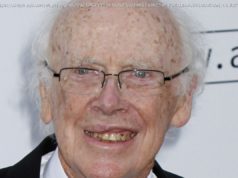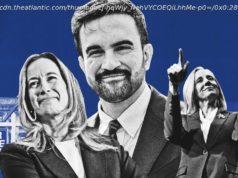Lawyers for Mr. Dassey, whose murder conviction was documented in the 2015 Netflix series, say investigators improperly coerced his confession.
The Supreme Court declined on Monday to hear the appeal of Brendan Dassey, whose murder conviction was documented in the 2015 Netflix documentary series “Making a Murderer.”
His lawyers, and a legion of supporters he gained after the popular series questioned his 2007 conviction, argued that police investigators improperly coerced his videotaped confession. Mr. Dassey, 28, was convicted of participating with his uncle Steven Avery in the 2005 murder of Teresa Halbach, a 25-year-old photographer in Manitowoc, Wis.
The 10-part Netflix series by the filmmakers Laura Ricciardi and Moira Demos suggested that police investigators unfairly questioned Mr. Dassey when he was 16 without a lawyer or parent present. He appeared scared and unaware of the gravity of his situation on camera, and his lawyers say he had a low IQ in the seventh percentile of children his age, making him susceptible to suggestion.
The Supreme Court did not offer a reasoning for its decision.
In a statement, Laura Nirider, a lawyer for Mr. Dassey, said, “We will continue to fight to free Brendan Dassey.”
“Brendan was a sixteen-year old with intellectual and social disabilities when he confessed to a crime he did not commit,” she said. “The video of Brendan’s interrogation shows a confused boy who was manipulated by experienced police officers into accepting their story of how the murder of Teresa Halbach happened.”
The Wisconsin attorney general, Brad Schimel, said in a statement he was pleased by the decision.
“We hope the family and friends of Ms. Halbach can find comfort in knowing this ordeal has finally come to a close,” he said.
The Netflix series led to renewed legal interest in his case, and at times in his roller-coaster legal process, it appeared he might go home. In August 2016, William E. Duffin, a federal judge in the Eastern District of Wisconsin, overturned his conviction, agreeing that the confession was invalid.
“The investigators repeatedly claimed to already know what happened on October 31 and assured Dassey that he had nothing to worry about,” Judge Duffin wrote in his court order. “These repeated false promises, when considered in conjunction with all relevant factors, most especially Dassey’s age, intellectual deficits, and the absence of a supportive adult, rendered Dassey’s confession involuntary under the Fifth and Fourteenth Amendments.”
Mr. Schimel appealed the decision, but Judge Duffin ordered that Mr. Dassey be freed while the legal process played out, writing that prosecutors failed to demonstrate that he would be a threat to the community.
He never went home; a federal appeals court blocked his release in November 2016.
In June 2017, he won another major victory when a federal appeals court said it agreed with Judge Duffin’s decision. But in December 2017, the United States Court of Appeals for the Seventh Circuit ruled by a 4-to-3 vote that his confession had not been coerced.
“Dassey spoke with the interrogators freely, after receiving and understanding Miranda warnings, and with his mother’s consent,” Judge David Hamilton wrote for the majority . “The interrogation took place in a comfortable setting, without any physical coercion or intimidation, without even raised voices, and over a relatively brief time. Dassey provided many of the most damning details himself in response to open‐ended questions. On a number of occasions he resisted the interrogators’ strong suggestions on particular details. Also, the investigators made no specific promises of leniency.”
His lawyers appealed, setting up Monday’s Supreme Court decision. While Ms. Nirider pledged to continue his fight on Monday, she did not outline any specific next steps.
Mr. Dassey’s case does not directly affect Mr. Avery, his uncle who was convicted in a separate trial.






